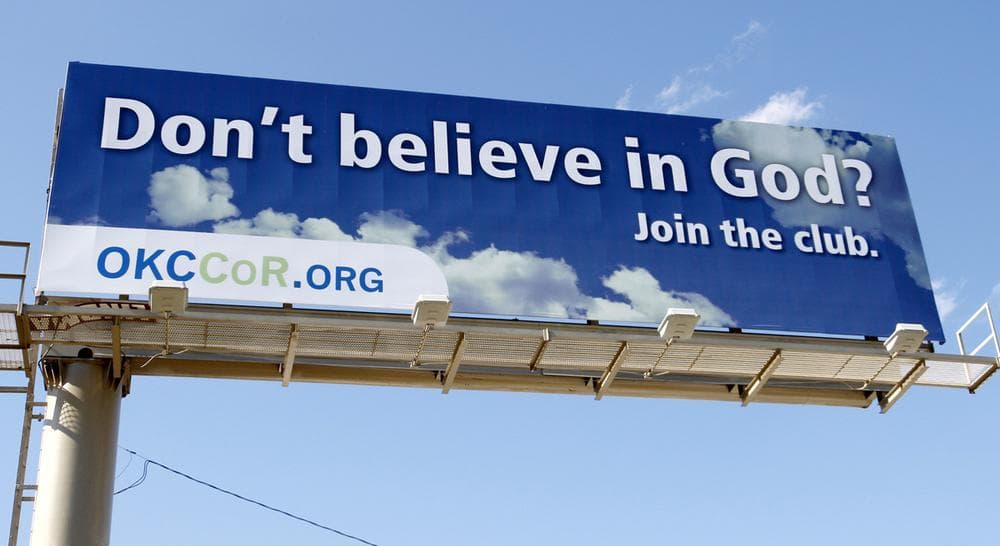Advertisement
A Warning To Future Candidates: Wear Religious Blinders At Your Own Risk
Now that we’re past anxiously wondering who the next president will be, we can ask: What does this election say about the state of American values?
There were a host of hot-button ethical issues on ballots across the country, from marijuana to gay marriage to death with dignity. But the signature values moment of 2012 was the decisive defeat of Republican senatorial candidates Todd Akin and Richard Mourdock in Missouri and Indiana respectively.
The nonreligious are now one of the largest demographic groups in the U.S., and numerous polls and studies have shown that a majority of young Americans are moving away from conservative religious values.
Akin and Mourdock, both saddled by their refusal to allow women to choose abortion even in the case of rape, represent an historic and quite possibly permanent shift in religious values in U.S. politics. These extreme views will now cost a candidate an election, even in America’s heartland.
Future candidates, take note: If you’re a religiously motivated politician, that’s fine, but wear religious blinders at your electoral peril. The nonreligious are now one of the largest demographic groups in the U.S., and numerous polls and studies have shown that a majority of young Americans are moving away from conservative religious values.
"The broad trend of last night's election is generational," wrote Princeton political scientist Omar Wasow in a Facebook post on Wednesday. "The older generation's social conservatism on drugs, race, gender, and marriage equality are losing their hold."
Or, as the interfaith leader Frankie Fredericks tweeted to me last night, “[The way Christians are] voting is changing. I'm an evangelical and I would vote for a humanist if they reflected my views and values.”
@goodwithoutgod How Christians are voting is changing. I'm an evangelical & I would vote for a Humanist if they reflected my views & values.— Frankie Fredericks (@frankiefreds) November 7, 2012
Am I overstating the case? Were Akin and Mourdock’s words simply misinterpreted as they have claimed?
The truth is they expressed positions that many others have in the past. But this time, under the glare of a multi-billion dollar national campaign, we saw how much those views cost them politically and how the tide has turned away from the beliefs that Akin and Mourdock earnestly hold.
Advertisement
So, what’s next for American values? If two bright red states can so forcefully reject this strict theology, it may not be long before our first openly gay senator is joined by an openly atheist or humanist victor in a big election. Might our electorate finally be ready to consider a non-religious candidate?
There’s no question we’ve got our work cut out for us.
As he ticked through his usual list of crucial American constituencies—“black or white or Hispanic or Asian or Native American or young or old or rich or poor, able, disabled, gay or straight”-- in his victory speech last night, President Obama made no mention of nonbelievers, as he did during his inaugural address in 2008. It may be time to give him a little tough love — to resume our lobbying efforts to get back on that list, holding him accountable until we are.

But let’s also look inward and recognize the best way to make America more accepting is not by berating our religious neighbors. We humanists need to build up our own community, and expand our recent efforts to show that the secular community can help make America a better place.
As this election proves, community is more important than ideology — and unity is more important than wedge politics. If humanists and the nonreligious take this to heart, we may advance our values in the years ahead.
Related:
This program aired on November 8, 2012. The audio for this program is not available.